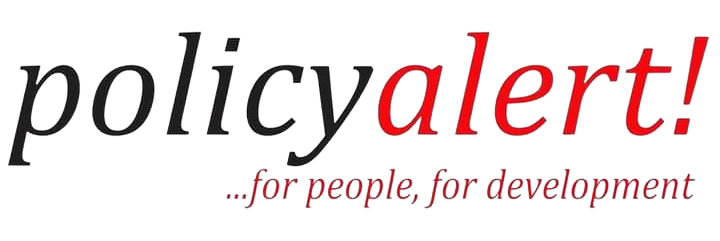Niger Delta Communities Demand Action as Methane Emissions Threaten Health, Livelihoods and Environment
Port Harcourt, Nigeria (March 14, 2025) – Oil and gas communities in the Niger Delta are demanding stronger accountability from government and oil companies over the unchecked release of methane emissions that continue to devastate their health, environment and livelihoods. Determined to challenge the status quo, community leaders, traditional rulers, civil society organizations, women community leaders and environmental advocates gathered in Port Harcourt for a Capacity Building Session on Methane Emissions Reduction for Fenceline Communities.The event, organized by Policy Alert, in collaboration with the Natural Resource Governance Institute and We The people, equipped participants with the knowledge and tools required to advocate for stronger enforcement of methane regulations and hold oil companies accountable for sustainable practices.
Tijah Bolton-Akpan, Executive Director of Policy Alert, during his welcome remark, underscored the critical relevance of methane emissions discussions for fenceline communities. He stated, “Nigeria is a significant methane emitter, particularly within its oil and gas sector, with emissions stemming from gas flaring, venting, and fugitive emissions. In 2022, the country ranked seventh in the list of top gas flaring countries and, as of 2020, methane emissions from the country’s oil and gas sector accounted for 41 percent of Nigeria’s total greenhouse gas emissions. This constitutes a major climate threat and a significant risk to fenceline communities, who have to cope with the degraded ecosystem, health complications, and compromised livelihoods. Empowering these communities with knowledge is a vital step toward demanding accountability and encouraging sustainable solutions.”
During the event, experts highlighted the environmental, social, health and economic impacts of methane emissions. Methane emissions severely impacts impact human health, causing respiratory illnesses, skin diseases, and ground-level ozone formation, with disproportionate effects on children, women, and the elderly in their communities, raising concerns about limited enforcement of existing environmental regulations.
Ken Henshaw, Executive Director of We The People, stated: “Methane emissions has caused cause significant economic hardship for community people. This workshop, therefore, provided a space for them to express their concerns about the lack of accountability by government and companies on existing commitments to monitor and reduce methane emissions.”
Community members expressed deep frustration over the government and oil companies’ willingness to act, citing past engagements with oil companies and regulators that yielded little to no results. “While many of us are only just becoming familiar with methane emissions, we have long engaged on gas flaring and the pattern is the same. Despite repeated engagements, companies fail to fulfill commitments, regulators remain unresponsive, and enforcement is weak. We invite regulators to town halls, but participation is limited. Many in our communities feel powerless, and frustrated by the lack of accountability,” Martins Asukpa said.
Participants stressed the need for increased community participation in environmental monitoring and decision-making processes to integrate local knowledge and concerns into policy development. They called for stricter regulations on gas flaring and investment in alternative energy sources, such as solar,to reduce fossil fuel dependency and its impacts.
Community Leaders and Civil Society Organizations (CSOs) pledged to support local advocacy efforts, while participants committed to conducting step-down training in their communities to increase awareness and engagement. Oba (Prophet) Oluwambe Ojagbohunmi JP also committed to training fellow chiefs on methane’s impact, recognizing the importance of informed leadership in addressing these challenges. Community-based organizations committed to developing pilot emission monitoring initiatives through local communication platforms. The discussion underscored the need for greater inclusion of women, youth, and traditional leaders in decision-making processes.
### End ###
Media contact:
Abasiama Cyril
07010938024
